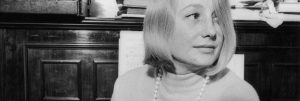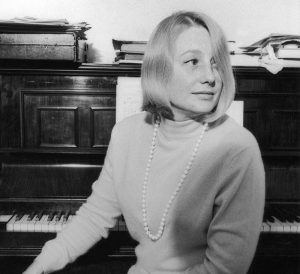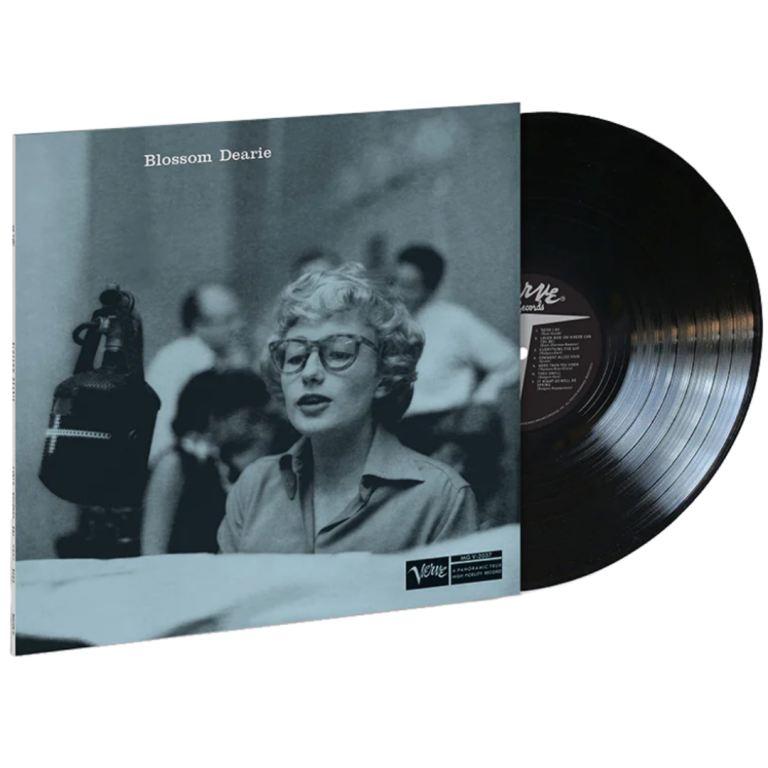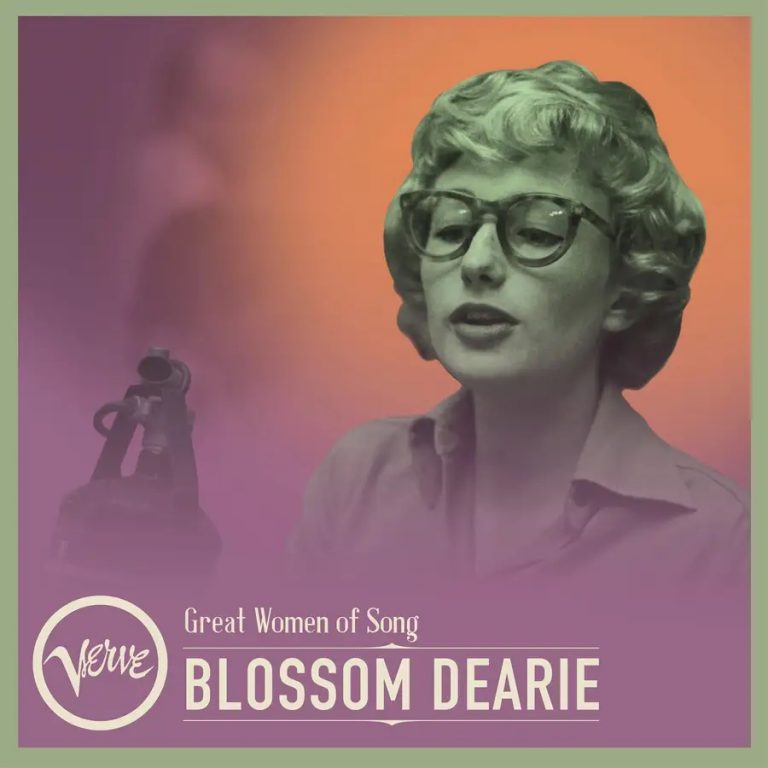Born in New York in 1924, Blossom Dearie (yes that’s her real name) bloomed early – she was playing Chopin and Bach at 10 – but her heart was lost to jazz when, after high school, she moved to Manhattan, and into the centre of the jazz scene.
By 1952 Dearie was living in Paris, where she met the founder of Verve records Norman Granz – with whom she recorded six albums. Dearie was an in-demand singer and with her Parisian connections she founded the Blue Stars – the vocal ensemble for whom Michel Legrand arranged his French version of “Lullaby of Birdland.” The Blue Stars morphed into the Swingle Singers, the cool 60s vocal ensemble that struck gold with “Jazz Sebastien Bach” [sic]– music that feels made for a Wes Anderson movie.
The first thing that hits you about Blossom Dearie is her unique voice. She’s the antithesis of the big throated Jazz Diva, instead leaning into a girlish, wispy vocal style. You won’t hear Dearie “belt” and she rarely scatted; it’s like listening to a melodious conversation.
But don’t let Dearie’s voice take your attention from her superb, subtle piano playing which was an equal partner, rather than a canvas for her voice. A musician’s musician, it was through her friendship with Gil Evans that Blossom met Miles Davis – they even shared the stage at the Village Vanguard – and it’s unsurprising that Miles was a fan of Blossom’s; he shares something of her breathy, cool tone. Compare and contrast her take of “If I Were a Bell” with Miles’ iconic version – both from 1958 – and you can hear the shared sensibilities. Like Davis, Dearie could make demands on her audience; she disliked food service during her sets, and would ask people to stop smoking or be quiet.
For another of her musical friends, Bill Evans, Dearie is said to have provided profound inspiration. After her death, the pianist Dave Frishberg (composer of a Dearie Favourite “My Attorney Bernie”) reflected:
“During the late sixties I played a couple weeks solo opposite the Bill Evans Trio at the Village Gate on Bleecker St, and had some conversations with Bill. I asked him how he came upon his piled-fourths voicing of chords, and his immediate answer was that he heard Blossom Dearie play that way and it really knocked him out. Then he did a little rave review of Blossom, naming her as one of his models of piano playing. It was such a surprising response that I never forgot it.”
Dave Frishberg
As she approached middle age, Blossom hit her stride in London. The quirky American with the sharp wit and distinctive voice was at home in the epicentre of Britain’s technicolour post war sexual and cultural liberation: Soho. Following a residency at the legendary “Ronnie Scott’s” she became popular on stage and TV – often appearing with Peter Cook and Dudley Moore.
Where so many other artists became aesthetically stranded at the crossroads of jazz, pop and cabaret – bogged down by chintz or melodrama – Dearie found pathos and humour.
But the glitz faded and, after being dropped by her label for the second time in 1974, Dearie took the unusual move of setting up her own publishing company and label ‘Daffodil Records’. She was in complete control of her music, and in a move that was decades ahead of her time, she was able to sell records and cassettes directly to fans at gigs – does anyone still have one of those originals?
On Daffodil, she also recorded with Lyle Lovett and her old friend from Paris, Bob Dorough (of “Three is a Magic Number” fame) with whom she’d earlier recorded “Figure Eight” and “Unpack Your Adjectives” for the American education TV cartoon “Schoolhouse Rock.”
At a time when female artists in particular, were treated like puppets on a string, this was a bold move, and with 15 releases under her belt, Dearie pushed ahead with her quiet revolution.
Dearie ended her career in typical fashion – no glamorous TV send off – she played her final residency spot in NYC in 2007 at the age of 82. A true muso’s swan song. For me, Blossom Dearie’s well crafted restraint epitomises mid century cosmopolitan sophistication, and The New Yorker’s description is perfect: the “babyish voice singing postgraduate lyrics.”
Freya Hellier is a radio, audio and content producer based in London and Glasgow. She has spent many years making programmes about all genres of music for BBC Radio 3, Radio 4 and beyond.
Header image: Blossom Dearie. Photo: Mirrorpix.




